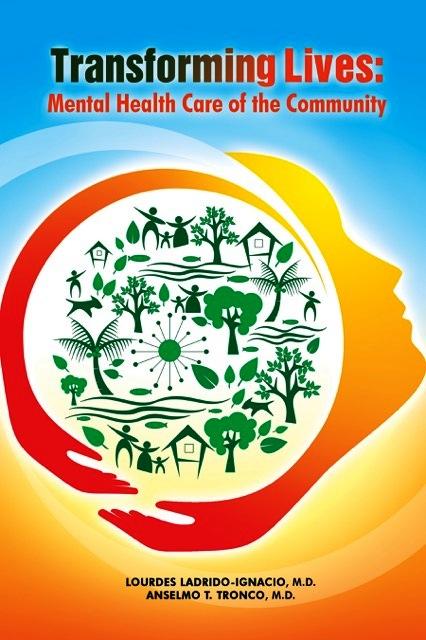‘Transforming lives’: Book outlines mental health care strategies for the community
The updated edition of a seminal book on mental health was launched on Tuesday, July 5, at the University of the Philippines College of Medicine in Manila.

The revised "Transforming Lives: Mental Health Care of the Community" by Dr. Lourdes Ladrido-Ignacio and Dr. Anselmo Tronco covers strategies on identifying mental health illnesses among members of a community and mental health care in times of disaster.
A Professor Emeritus in Psychiatry at the University of the Philippines, and a past president of the Philippine Psychiatric Association, Dr. Ignacio is a lifelong advocate of making mental health care accessible to all FIlipinos.
Her extensive resumé includes working with municipal health staff nationwide and involvement with international organizations such as the World Health Organization and the World Association for Psychosocial Rehabilitation.
Her co-author, Dr. Anselmo Tronco, was mentored by her and is the current Chairman of the Department of Psychiatry and Behavioral Medicine at the University of the Philippines.
Mental health care on the ground
The book lays out guidelines on training workers at the barangay level and on dealing with mental health issues in times of crises such as natural disasters.
It stresses the need for communities to come together—families, the barangay, the parish, the local government—to help the individual. It is all about "community development, finding interconnectedness between individuals and the community," Dr. Ignacio told GMA News Online. "The individual needs the support system of the family and the barangay."
"Transforming Lives" was first published in 2000. This updated version reflects Dr. Ignacio's own developing outlook on mental health treatment.
"This book will not only give [trainees] the understanding, the knowledge of what mental health is about, and what it is for them to be mental health workers...As you do this, you realize you're actually looking at your own mental health," she said.
"The first book was called 'Mental Health Care In The Community'. At some point in time I realized, 'Lahat tayo nagbabago dito. Even ako, yung mga konsepto ko.
This realization—that mental health care providers, whether barangay workers or highly trained psychiatrists, are affected and changed by their experience, and in a way become part of the community they are helping—led to her amending the title of the book to "Mental Health Care Of The Community."
Her growth has led her to add another important component in treating people with mental illnesses: the spiritual aspect of an individual. It was something she resisted at first as a trained medical professional, she said, but she came to realize that religion and spirituality can help in an individual's healing process.
Mental health and the community
The book includes personal accounts of people who have lived through mental health illnesses and trauma. One such account is of a mayor who recalled feeling desolation as he walked through his typhoon-devastated town:
"The first action I thought I had to attend to was relief distribution, infrastructure and livelihood planning. Health care support was last in my agenda of emergency plans. It took a while for me to realize how jumbled were my plans.
"A training on leadership and later my meeting with health workers in my town who trained in mental health allowed me to redirect my focus on the people themselves, especially as reports of physical illnesses and mental health problems flooded my desk. Applying the training on myself and my personal circumstances and recalling how my father died and how my family suffered like the rest of the people in the town led me to think that a person's health is crucial...so that he can cope with crises.
"I realized that ill health will cause serious consequences in the community. It will hamper the development of the community and the generation of its resources necessary to sustain the life of the people in it.
"Now, I see myself not only as the Mayor who will continue to work for the rehabilitation and rebuilding of our town but as a community health leader. The physical and mental well-being of our people should be my priority."
Dr. Ignacio also wants to raise awareness of the shortage of medical health professionals in the field of psychiatry and mental health care. In 2015, the World Health Organization (WHO) said that while one in 10 people worldwide has a mental health disorder, only one percent of the global health workforce is treating mental health illnesses. Nearly half of the world's population lives in a country where there is less than one psychiatrist per 100,000 people.
Ultimately, Dr. Ignacio hopes that there will be a change in public perception of mental health and remove the stigma of mental illness. A person should not be ashamed to seek help. When a person receives the support and help they need, it relieves them of some of their burden. "Nakakagaan," she said. — VVP, GMA News




